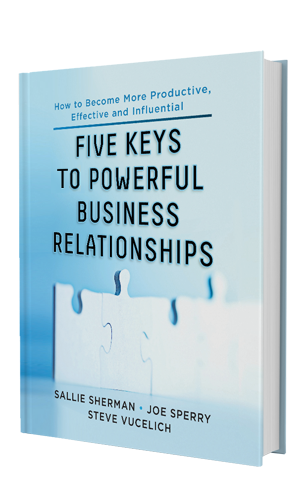 How many times have you heard this: “The business events industry is a relationships industry.” And it’s true. Success in the meetings industry depends on an event organizer’s ability to understand the needs of both clients and attendees.
How many times have you heard this: “The business events industry is a relationships industry.” And it’s true. Success in the meetings industry depends on an event organizer’s ability to understand the needs of both clients and attendees.
In Five Keys to Powerful Business Relationships: How to Become More Productive, Effective, and Influential, authors Sallie Sherman, Joseph Sperry, and Steve Vucelich — CEO, former partner, and vice president of S4 Consulting, respectively — highlight the importance of empathy in developing relationships. Focusing only on your own work and not taking the time to understand how colleagues feel is “actually slowing you down and significantly limiting your influence,” the authors write.
On the other hand, “being empathetic shifts the focus away from you and allows others to be heard.” Here are a few ways that practicing empathy can help your business relationships thrive, including in the global business world, according to the authors:
1. You can adapt your problem-solving approach to get the best results for everyone. Not everyone processes issues at work in the same way. “If your colleague needs to understand the big picture first, you can start with that,” the authors write. “If another member of your team needs to understand first why something is important, you can start with that.”
2. If you are empathetic and adaptable, you will be easier to work with. In return, colleagues will empathize with your approach to work, too. “They may be more willing to consider how what they do might affect you,” the authors say.
3. By first walking in another’s shoes, you can anticipate possible problems. This can help save time and resources, according to the authors. If you can anticipate how a client will likely react to certain changes or suggestions, “you can avoid rework” as well as unnecessary conflict. Drawing on empathy in this way can help event organizers understand expectations and build the foundation for a long-term client relationship.
4. Being empathetic will increase your ability to influence others. By practicing empathy, you will “learn over time what works and what doesn’t in your relationships,” the authors say. “It will increase your self awareness and make you more effective…The most effective leaders, when trying to solve problems, often think about what it’s like to be their customer.”
5. Becoming more empathetic with those not like you can allow individuals to complement rather than frustrate one another. It is easy to empathize with like personalities. “In this global business world, though, with its interconnected cultures, firms, and supply chains, our assumptions about what certain behaviors mean can easily get us into big trouble,” the authors write. This is why it is crucial to invest time in understanding cultural differences. “We don’t have to think of cross-cultural business relationships to fully understand this,” the authors suggest. For instance, technical and creative thinkers could clash without attempting to bridge their differences and understand the other’s perspective.
6. If you practice empathy daily, your business relationships will grow. “Look for a common ground,” the authors suggest. “Demonstrate interest, respect, and appreciation for the other culture’s traditions and way of life.” If you cultivate openness and selflessness by displaying genuine care toward other people, the authors say, your colleagues will take notice.



